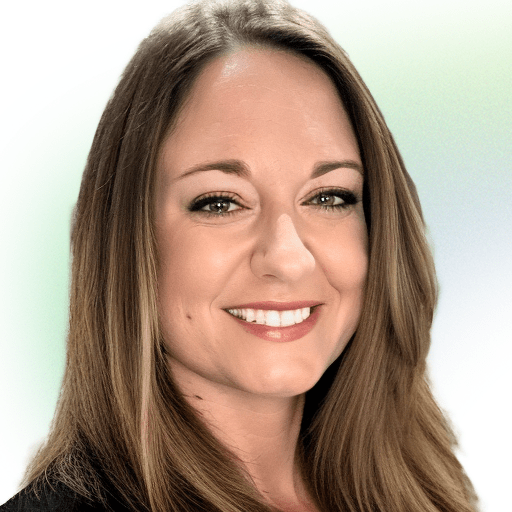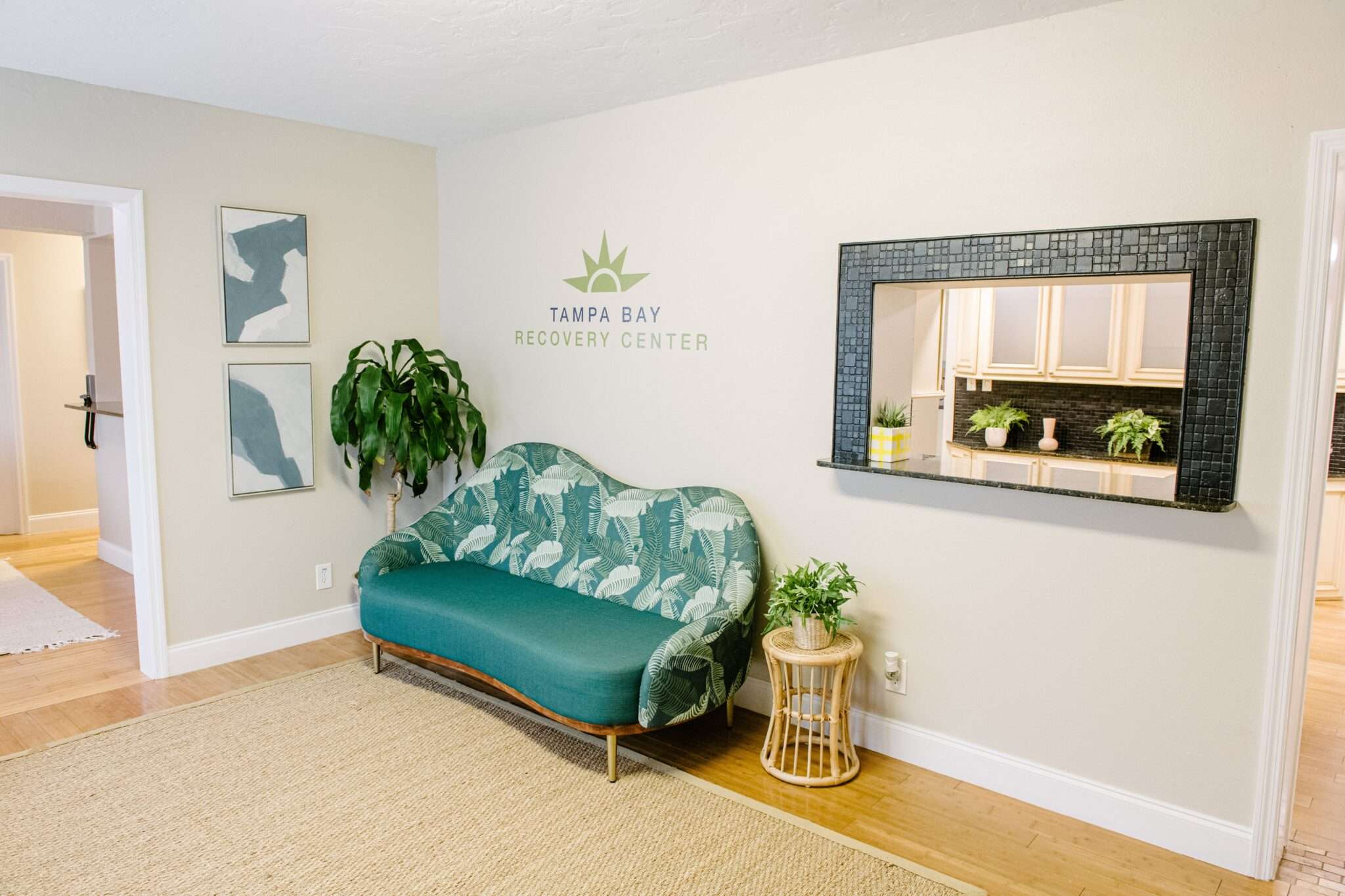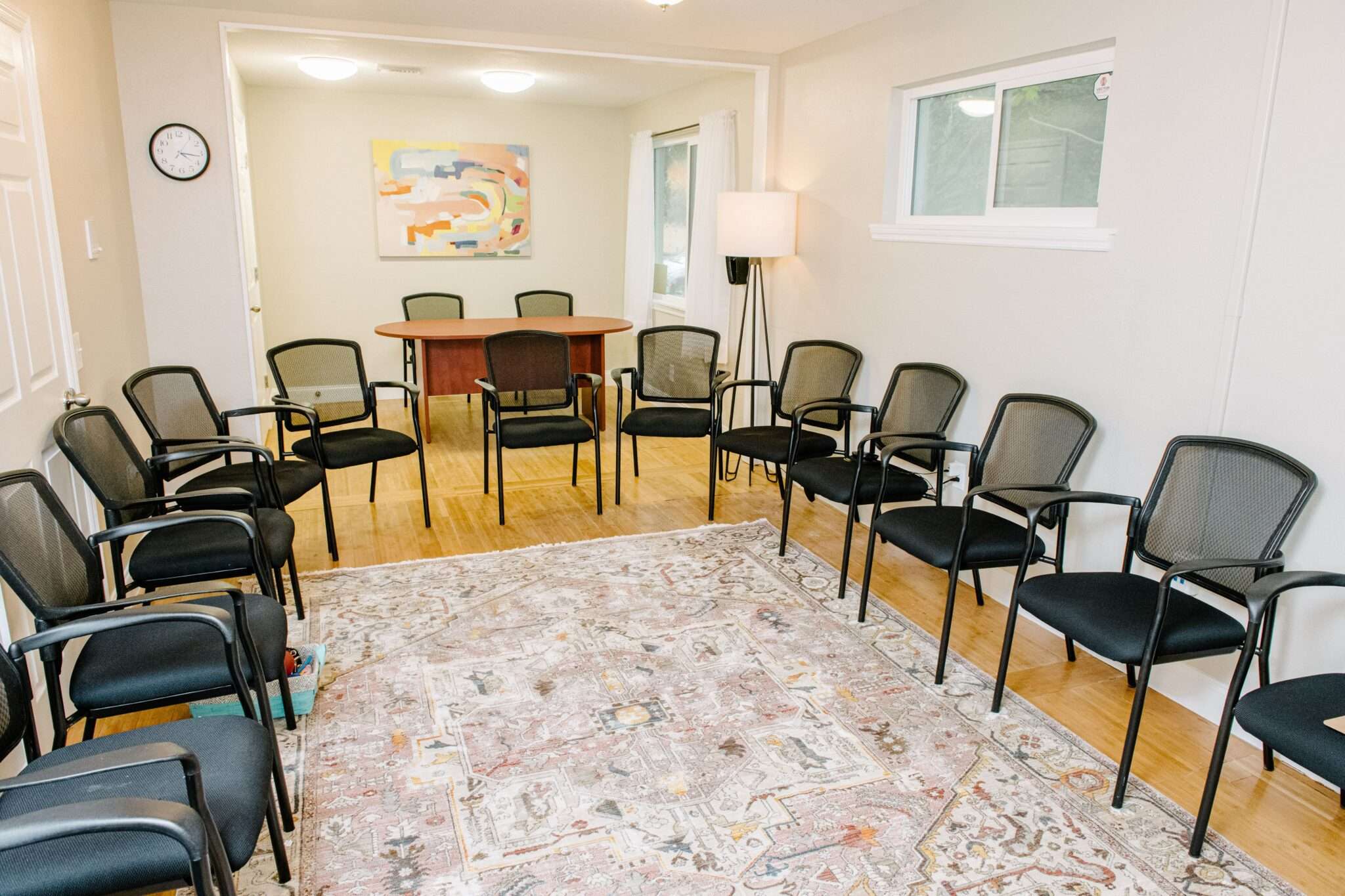Schizophrenia Treatment in Tampa, Florida
At the forefront of mental health care in Tampa, Gulf Coast Recovery Center offers specialized treatment for schizophrenia. We are committed to providing exceptional, evidence-based care tailored to each individual’s unique journey. Understanding the profound impact schizophrenia can have on individuals and their families, we foster a supportive environment that promotes recovery, resilience, and personal empowerment.
Our dedicated team of experts utilizes the latest research and therapeutic techniques to guide clients through every step of the recovery process, ensuring a path toward a more fulfilling and empowered life.
If you or a loved one is struggling with schizophrenia, call us now at 813-755-8864 or verify your insurance to start your journey to recovery.
What is Schizophrenia?
Schizophrenia is a chronic and severe mental health disorder that affects how a person thinks, feels, and behaves. It is characterized by episodes of psychosis, including hallucinations (seeing or hearing things that aren’t there) and delusions (strongly held false beliefs), as well as disorganized thinking and behavior.
According to MedlinePlus, schizophrenia affects almost 1% of the population, with slightly more males than females developing the disorder. While schizophrenia can cause significant challenges in daily functioning, the right support and treatment can help individuals lead fulfilling lives.
Signs and Symptoms of Schizophrenia
Schizophrenia symptoms can be categorized into positive, negative, and cognitive symptoms:
Positive Symptoms
- Hallucinations: Experiencing sensory perceptions that aren’t real, such as hearing voices.
- Delusions: Holding false beliefs that aren’t based in reality, such as believing one has extraordinary powers or is being persecuted.
- Thought Disorders: Disorganized thinking or speaking, making it difficult to communicate effectively.
- Movement Disorders: Agitation, repetitive movements, or catatonia (lack of movement or response).
Negative Symptoms
- Affective Flattening: Reduced emotional expression, such as lack of facial expressions or vocal tone.
- Alogia: Minimal speech or difficulty engaging in conversation.
- Anhedonia: Inability to feel pleasure from activities once enjoyed.
- Avolition: Lack of motivation or ability to initiate tasks.
- Social Withdrawal: Avoiding social interactions and relationships.
Cognitive Symptoms
- Difficulty concentrating or paying attention
- Memory problems
- Impaired decision-making or problem-solving skills
Types of Schizophrenia
Schizophrenia presents differently in each individual. Common types include:
- Paranoid Schizophrenia: Dominated by hallucinations and delusions.
- Disorganized Schizophrenia: Marked by disorganized speech and behavior, and inappropriate emotional responses.
- Catatonic Schizophrenia: Characterized by abnormal motor behavior, ranging from extreme agitation to complete stillness.
- Residual Schizophrenia: Symptoms have diminished, but some negative symptoms may persist.
- Undifferentiated Schizophrenia: A category for individuals whose symptoms don’t fit neatly into the other types.
Causes of Schizophrenia
The exact causes of schizophrenia are not fully understood, but it is believed to result from a combination of factors:
- Genetics: A family history of schizophrenia increases risk.
- Brain Chemistry: Imbalances in neurotransmitters like dopamine and glutamate.
- Environmental Factors: Stress, prenatal exposure to toxins, and substance abuse may contribute.
How Do Our Schizophrenia Treatment Centers Work?
At Gulf Coast Recovery Center, we take a holistic approach to treating schizophrenia. Our multidisciplinary team of psychiatrists, psychologists, and therapists collaborates to create personalized treatment plans that address each client’s unique needs.
Partial Hospitalization Programs (PHP)
PHP offers structured care without requiring overnight stays. Clients attend therapy sessions and treatment activities for several hours daily, focusing on symptom stabilization, skill-building, and community reintegration.
Intensive Outpatient Programs (IOP)
IOP provides flexibility while offering intensive support. Clients attend therapy a few hours a day, several days a week. This level of care is ideal for those transitioning from PHP or needing more structure than traditional outpatient services.
Outpatient Programs (OP)
OP offers ongoing support for individuals managing their symptoms while maintaining daily responsibilities. Clients attend therapy once or twice a week, focusing on relapse prevention and long-term recovery.
How is Schizophrenia Treated?
Effective treatment for schizophrenia often involves a combination of:
- Medication: Antipsychotic medications reduce the intensity of symptoms like hallucinations and delusions.
- Psychotherapy: Cognitive Behavioral Therapy (CBT) helps individuals challenge delusional thoughts, improve coping skills, and enhance social functioning.
- Support Services: Family education, vocational training, and peer support groups are essential for comprehensive care and rehabilitation.
If you’re ready to take the first step toward managing schizophrenia and reclaiming your life, call us at 813-755-8864 or verify your insurance today. At Gulf Coast Recovery Center, we are here to guide you toward a brighter, healthier future.
















